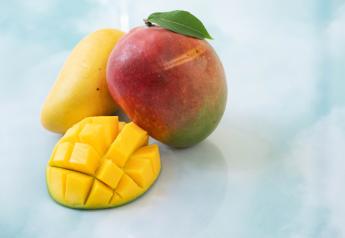Retailers discuss trends, challenges, opportunities at CPMA 2023

TORONTO — From trends in tropicals to the need for consumer education to cultivating customer loyalty, retailers discussed the challenges and opportunities in fresh produce during a panel discussion at the 2023 Canadian Produce Marketing Association Convention and Trade Show on April 26.
Led by CPMA President Ron Lemaire, the panel included Paul Scott, fresh produce buyer for Costco U.K.; Noelle Neary, produce category manager for Wakefern Food Corp.; and Jeanine Temperini, East Coast produce category manager for Restaurant Depot.
“How important is differentiation?” Lemaire asked, kicking off the discussion.
“It is incredibly important for us,” said Neary, who explained that each Wakefern store is in a different market with different shoppers and needs.
Differentiation is also important to Costco.
“People are always looking for something new,” Scott said. “We're seeing huge growth in our tropical category, where we're bringing exotic fruits [in] that people probably have never seen before. So, you've got to keep things moving and keep things fresh to engage.”
Schooling the consumer
When it comes to informing consumers about the role of fruit and vegetables in a healthy diet, the retail panelists agreed more education is needed.
“I think we need to educate children from a very early age,” said Scott, adding that programs in the U.K. have shown that children can't identify basic vegetables. “We need to get people not only to understand that fruit and vegetables are necessary for a healthy diet, but also how to cook with them — how to create fantastic meals with them. I think if you engage them that way, you've kind of got them for life.”
Restaurant Depot’s Temperini agrees there’s a need for fruit and vegetable education with young people but that it’s also a lifelong pursuit.
“There are always new products and different ideas. [At Restaurant Depot] it's our job to train them and teach them about new products and what to use with them,” she said. “So it starts young, but I think it constantly builds. There's always room to grow and produce.”
Many consumers also lack an understanding of seasonality, Neary said. Teaching consumers about what’s in season and getting them excited about new seasonal items by teasing it in the flyer has worked for Wakefern.
First to market
“Everybody wants to be first to market on a product,” Lemaire said. But being early doesn't always equate to bringing the optimal product to the consumer, who is ultimately disappointed. “Is there a balance that we can work with?” he asked.
At Costco, Scott says it’s better to be a little late to the party than to come in early with something that misses the mark. “[If customers have] a bad experience, you've lost that customer — that member — for life,” he said.
“I agree with you completely,” Neary said. “Especially because the consumer is who's going to have the experience and if the experience wasn't a good one, they're not coming back for more.”
Temperini says it all starts with the growers.
“That's always [my] question to the growers. What does it taste like? How is it eating? Do you like it? Then OK, I'll put it in my stores because that's the only way for us to continue to grow and have the customer coming back.”
What also keeps customers coming back to Restaurant Depot is meeting the changing needs of its shoppers. As its customers are in foodservice, their needs have been impacted by COVID-19 and now labor shortages.
“In value-added, where in retail you might see a decrease [in demand], in foodservice, we've actually seen an increase [in demand] because they don't have the labor,” Temperini said. “Maybe instead of chopping the head of lettuce themselves, they're going to buy the shredded lettuce [that costs] a little bit extra.”
Sustainability
“How do you see sustainability building in your markets?” Lemaire asked.
The panelists agreed that sustainability and social responsibility are critically important to protecting the Earth and its resources.
At Wakefern stores in New Jersey, where there is a plastic bag ban, “educating the customers is so important because people like to feel good about what they're doing,” Neary said. “And reminding them that, yes, [it’s] an inconvenience [to bring your own bags] in the beginning … but we need to protect the Earth. We need this to survive, to live, to feed your families. So, really putting it back into their hands and saying you're helping the Earth upward.”
Food inflation
While supermarket circulars had become a dying form of customer communication for many grocers pre-pandemic, rising food costs may be putting the flyer back in action.
Wakefern thinks its customers should be able to feed their families without worrying about the affordability of what they put in their baskets.
“No one wants to get up to the register and be calculating in their head: Can I afford food to feed my family? So, we put a great deal of focus on our flyers and how we can get the best value back to that customer,” Neary said.







